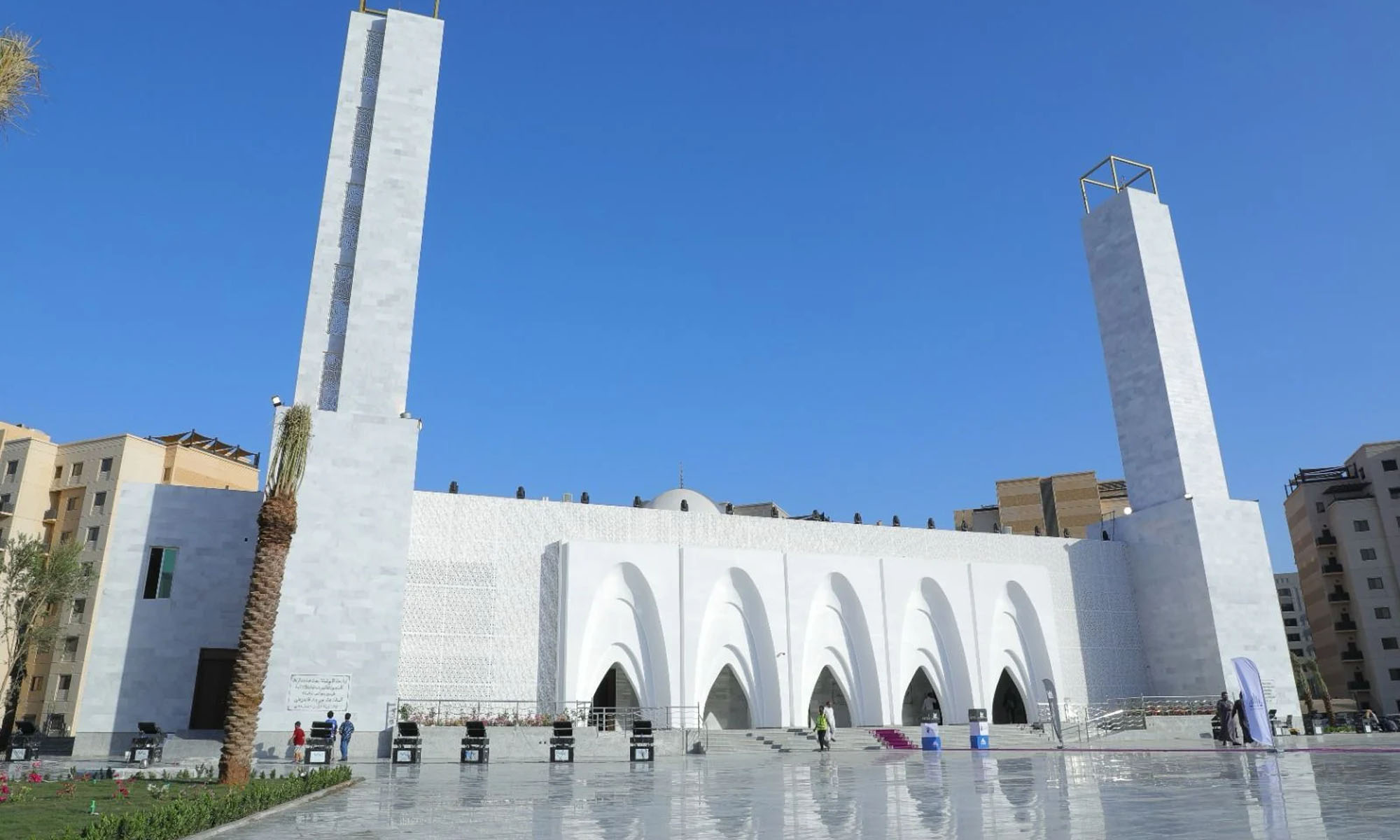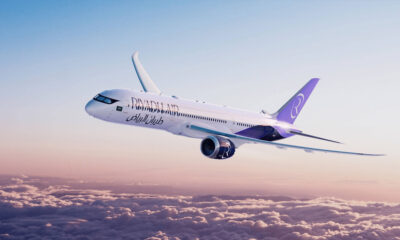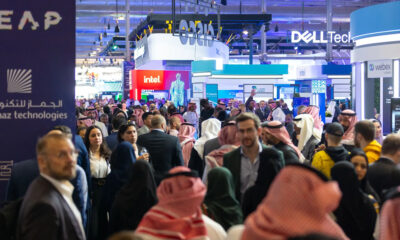News
Pioneering 3D-Printed Mosque Unveiled In Jeddah
The Abdulaziz Abdullah Sharbatly mosque is constructed using cutting-edge technology and symbolizes Saudi Arabia’s Vision 2030.

Although readers might be led to believe that 3D-printed architecture is a new concept, the technique actually traces its origins back over 80 years of theoretical design and 40 years of practical application. Initially employed for constructing cement-based structures, 3D printing has streamlined the process of laying down foundational bases for buildings from China to Europe and now to the Middle East.
Situated in Jeddah’s Al-Jawhara suburb, the 5,600-square-meter Abdulaziz Abdullah Sharbatly mosque is the first in the world to be created using 3D printing. Employing technology from renowned Chinese manufacturer Guanli, the religious building was commissioned by Saudi entrepreneur Wajnat Abdulwahed in memory of her late husband.
| افتتاح أول جامع في العالم يُبنى بتقنية الطباعة ثلاثية الأبعاد بجدة في #ضاحية_الجوهرة إحدى ضواحي #الوطنية_للإسكان باسم جامع السيد/ عبدالعزيز عبدالله شربتلي رحمه الله، على مساحة 5600 م2، كإهداء من زوجته @W_Abdulwahed رئيسة مجلس إدارة منظومة فرسان العقارية المنفّذة للمشروع. pic.twitter.com/WyEHpBX2wD
— عدّاد جدة (@3adad) March 7, 2024
Built by Forsan Real Estate under Abdulwahed’s direction, the mosque is part of the National Housing Co.’s portfolio and was opened to the public amidst a gathering of Saudi business leaders and senior government officials.
The Abdulaziz Abdullah Sharbatly project aims to introduce modern built-environment technologies to Saudi Arabia, positioning the nation as an early adopter. Utilizing a 3D scanner and specialized Computer-Aided Design (CAD) software, Guanli employed additive manufacturing to construct successive layers, significantly reducing material wastage compared to conventional techniques.
Also Read: Getting Started With Google Gemini: A Beginner’s Guide
During an interview with Arab News, Abdulwahed explained that the “design concept of the mosque was based on fostering a sense of tranquility among worshippers through the principle of gracious hospitality. The mosque’s design was centered within a circle that can be easily oriented towards the qibla. Attention was paid to the building’s mass and its relationship with natural light, the design of entrances and gates, and the exterior facades to reflect the architectural identity”.
The white facade of the mosque is flagged by distinctive towering minarets and complimented by an open-air outdoor courtyard, which allows a greater number of worshippers inside during busy times such as Friday prayers, taraweeh prayers in Ramadan, and Eid.
News
Alienware Just Announced Six New Gaming Monitors
The new models include three QD-OLED and three budget-friendly QHD options, expanding the company’s lineup for all gamers.

Alienware has just updated its gaming monitor lineup with six new additions, including the highly anticipated Alienware 27 4K QD-OLED Monitor. The latest wave of releases is set to reach more gamers than ever, offering high-end QD-OLED displays alongside more budget-friendly options.
The latest displays clearly show that the company is doubling down on QD-OLED with three new models sporting the technology. A redesigned Alienware 34 Ultra-Wide QD-OLED Monitor is also making a return, further refining what is already a fan-favorite display.
A Unified Design: The AW30 Aesthetic
All six monitors feature Alienware’s new AW30 design language, first introduced at CES. The AW30 aesthetic brings a futuristic, minimalist look that unites the entire lineup under a cohesive visual identity.
Pushing QD-OLED Even Further
The refreshed Alienware 34 Ultra-Wide QD-OLED Monitor (AW3425DW) builds on its predecessor’s success with a 240Hz refresh rate (up from 175Hz) and HDMI 2.1 FRL support. It also gains G-SYNC Compatible certification alongside AMD FreeSync Premium Pro and VESA AdaptiveSync, ensuring ultra-smooth performance. With a WQHD (3440×1440) resolution and an 1800R curve, this display enhances immersion for both gaming and cinematic experiences.
For those who crave speed, the Alienware 27 280Hz QD-OLED Monitor (AW2725D) pairs a high refresh rate with QHD resolution, balancing sharp visuals with ultra-smooth gameplay. Meanwhile, the Alienware 27 4K QD-OLED Monitor (AW2725Q) delivers stunning clarity with an industry-leading pixel density of 166 PPI, making it the sharpest OLED or QD-OLED monitor available.
Also Read: Infinite Reality Acquires Napster In $207 Million Deal
Worried about OLED burn-in? Alienware’s entire QD-OLED lineup comes with a three-year limited warranty covering burn-in concerns, offering peace of mind for gamers investing in these high-end displays.
Bringing QHD To A Wider Audience
Alongside QD-OLED, Alienware is also releasing three new QHD gaming monitors aimed at more price-conscious gamers. The Alienware 34 Gaming Monitor (AW3425DWM), Alienware 32 Gaming Monitor (AW3225DM), and Alienware 27 Gaming Monitor (AW2725DM) provide a range of sizes and formats to suit different preferences:
- The Alienware 34 Gaming Monitor (AW3425DWM): An ultrawide (WQHD) option for a panoramic, immersive experience.
- The Alienware 32 Gaming Monitor (AW3225DM): A standard 16:9 panel for a traditional but expansive desktop setup.
- The Alienware 27 Gaming Monitor (AW2725DM): A 27” display offering the same performance in a more compact form factor.
All three gaming monitors feature a fast 180 Hz refresh rate, a 1ms gray-to-gray response time, and support for NVIDIA G-SYNC, AMD FreeSync, and VESA AdaptiveSync to eliminate screen tearing. Additionally, with 95% DCI-P3 color coverage and VESA DisplayHDR400 certification, these displays deliver vibrant colors and high dynamic range for lifelike visuals.


























